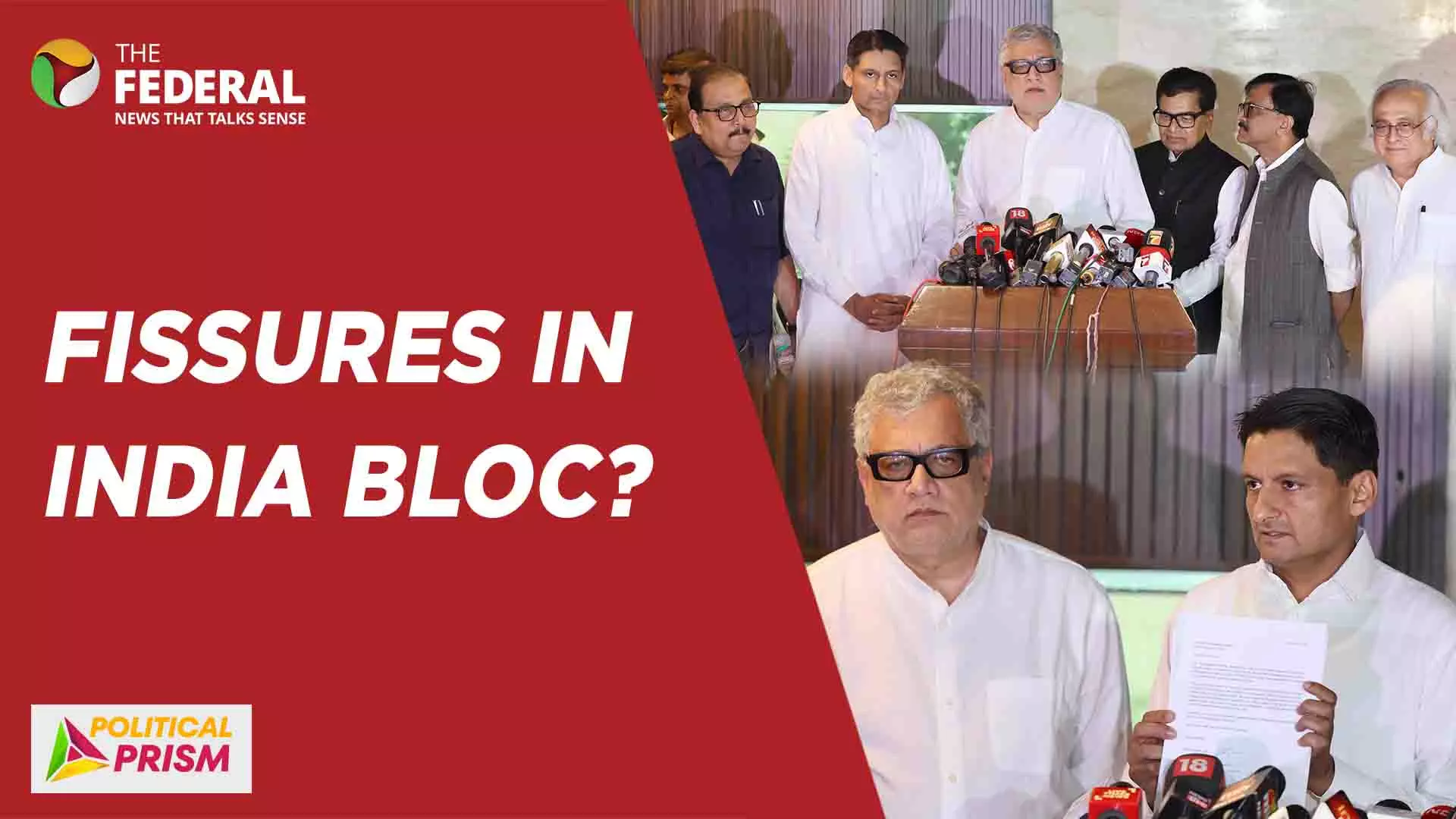
Without floor coordination or a shared public agenda, the electoral future of the INDIA alliance appears fragmented.
Cracks appear in India bloc as it demands Parliament session over Op Sindoor, ceasefire
Sharad Pawar’s NCP faction did not sign the letter, and the Aam Aadmi Party also refused to co-sign, saying it would send a separate letter with the same demands

In a rare show of joint action, 16 opposition parties of the INDIA bloc met in Delhi to demand a special session of Parliament. Their letter to Prime Minister Narendra Modi seeks a full discussion on the April 22 Pahalgam terror attack, Operation Sindoor, and the sudden ceasefire announced — unusually — by US President Donald Trump.
This demand comes amid growing questions about the lack of Parliamentary engagement on these sensitive matters despite widespread global outreach by the government and all-party delegations abroad.
Key issues raised
The INDIA bloc’s joint letter argues that Parliament — “the voice of the people” — has yet to be allowed to debate or question the government's moves on national security and diplomacy. The opposition underlined that despite being united with the government post the Pahalgam attack and during Operation Sindoor, it was not consulted on the ceasefire decision.
Also Read: 16 Opposition parties seek special session on Op Sindoor, write letter to PM Modi
“While everyone seems to have been briefed, Parliament has not yet had a chance to discuss all of these issues,” the letter noted. The ceasefire was first announced by Donald Trump on social media — a fact the opposition finds deeply troubling.
Unusual US involvement
The ceasefire’s announcement by Trump, rather than the Indian or Pakistani governments, raised eyebrows. The US President claimed credit for brokering the truce and even hinted at using trade threats to force compliance.
“These are very serious matters,” the opposition said. “The only way they can be discussed… is if these are discussed threadbare at a special session of Parliament.”
Also Read: Operation Sindoor: RJD MP writes to PM, seeks special session of Parliament
Despite the gravity of the issues, the government remains firm that a special session is unnecessary, pointing instead to the upcoming monsoon session in July.
Cracks within the bloc
What was meant to be a show of unity ended up revealing sharp internal fissures within the INDIA bloc. Sharad Pawar’s NCP faction did not sign the letter. The Aam Aadmi Party also refused to co-sign, saying it would send a separate letter with the same demands.
Even while addressing the media, Trinamool’s Derek O'Brien avoided using the term “INDIA bloc,” referring instead to “16 opposition parties.”
Security versus publicity
Sharad Pawar has expressed concerns about discussing sensitive security issues in a televised Parliament session. He instead advocates for an all-party meeting chaired by the Prime Minister. However, the PM has skipped both all-party meetings held after the Pahalgam attack and Operation Sindoor, casting doubts on the efficacy of such a demand.
Also Read: PM Modi to chair first Council of Ministers' meeting after Op Sindoor
Future of opposition unity
Post the 2024 Lok Sabha elections — where the INDIA bloc dented the BJP’s majority — the alliance has struggled to retain cohesion. Without floor coordination or a shared public agenda, its electoral future appears fragmented.
“Is the INDIA bloc now just a platform that will come together when it suits their convenience… or can it again present a national, cohesive, strong alternative?” the presenter asked.
For now, the government appears disinterested in a special session or an all-party meeting. And the INDIA bloc, while raising vital issues, must first resolve its internal contradictions.
(The content above has been generated using a fine-tuned AI model. To ensure accuracy, quality, and editorial integrity, we employ a Human-In-The-Loop (HITL) process. While AI assists in creating the initial draft, our experienced editorial team carefully reviews, edits, and refines the content before publication. At The Federal, we combine the efficiency of AI with the expertise of human editors to deliver reliable and insightful journalism.)

